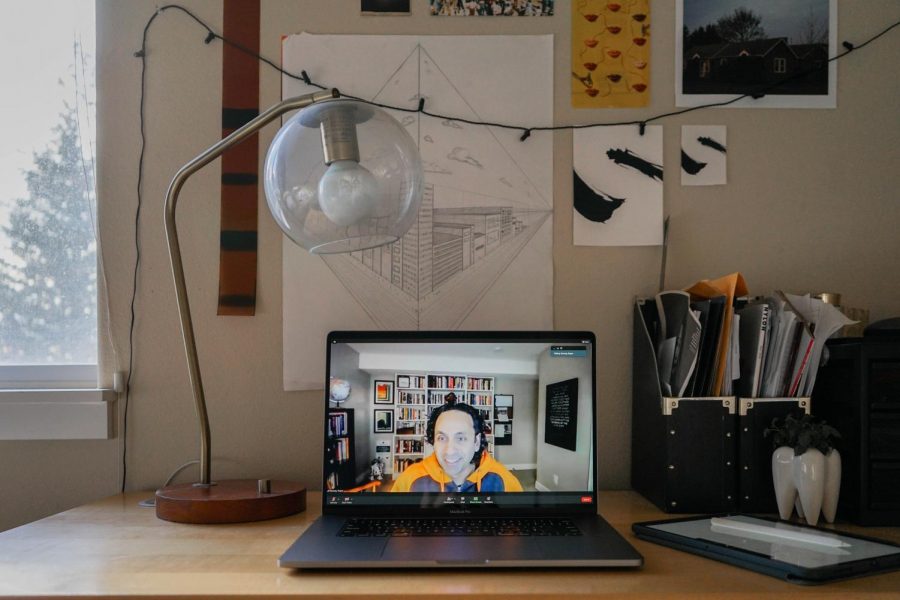Lovely: Finding happiness in new traditions during the pandemic, holiday season
December 26, 2020
Editor’s Note: This column does not represent the opinion of The Daily Barometer. This column reflects the personal opinions of the writer.
Students and faculty alike at Oregon State University have faced challenges with remote learning amidst the COVID-19 pandemic, learned to make the best of difficult situations and how to improve mental health as they adjust to a quarantined lifestyle.
Students across all disciplines and class standings struggle with ever-changing COVID restrictions and uncertainties. This holiday season is no exception, as it further complicates routines and traditions with added pressure surrounding traveling.
Regan Gurung, Ph.D., a professor of Psychological Sciences at OSU, highlighted different strategies that could be used to facilitate the adaptation to remote living and learning.
Some students set long-term plans in conjunction with short-term goals. This allows flexibility for changes or shifts in plans, but continual let-downs and unforeseeable changes can make it difficult to attain the short-term goals which lead to long-term successes. Frustration stems from repeated failures to achieve those short-term goals, pushing the student further and further from their ideal endgame.
According to Gurung, the disruption to the routine has the biggest impact on students faced with remote learning in a pandemic. There is no commute to campus, no classroom, no projector, screen, or chalkboard. For structurally-reliant students who were accustomed to all of these things, having an entirely different routine has made for a difficult term because everything they do is now in the same context.
Other students may need physicality to keep them on task: being physically present in a certain environment is associated with a mental focus and readied for a specific task. During the pandemic, however, students are quarantined at home where they are constricted to one space for all of their daily activities, losing the physical aspect of their pre-class routines and mental preparation.
When the whole routine is compressed into a single environment, the context becomes an essential detail to consider.
For example, to watch Netflix, I may lounge in my pajamas, but to join a Zoom meeting I may dress for success. Something as simple as replacing your slippers with real shoes, Gurung suggests, may create a mental shift toward a workplace mindset. These elements are necessary to create a new routine that can help students and faculty regain focus when it comes time to sit down for classes.
One student who has struggled over the past few terms with remote learning is Megan Reynolds, a junior at OSU studying music production. She struggled with the transition to remote learning after two years of working in the recording studio in Snell Hall.
“Snell is amazing and has everything you could need – along with older students who can help you out with more complicated techniques. One of my sequence classes took place there and I had to take the third term online, which was difficult,” Reynolds said. “Since we aren’t in person we had to focus, instead, on mixing, editing, and recording from our own Digital Audio Workstation. While this was useful, it was hard to take such a huge step back from the physical studio.”
Reynolds is not alone in her feelings of confusion and her struggles with finding a balance between time for school and time for herself. I have found during the pandemic that my mental health and academic successes have taken significant hits, especially since I am an extrovert who draws energy from social gatherings and interpersonal connection.
Needing to isolate at home for so many months has affected my attitude toward academic and personal endeavors, making me feel alone in my struggles. Much like Reynolds, adapting to remote learning has not been easy and has required me to learn entirely new study habits and skills to stay on track for academic success.
When it comes to the holiday season, adapting to changing circumstances surrounding COVID-19 can also affect mental health.
Gurung said there are two options we find ourselves choosing between this holiday season: to replicate old traditions or to create new ones. Stresses and risks are at an all-time high this year as COVID cases continue to climb, so it is important to take a step back and recognize that one thing we can control this year is our actions.
Gurung recommends trying something completely different and new this year, not trying to modify any cherished rituals and risking disappointment or comparing it to something unrealistic with a pandemic at hand.
First-year business administration student Charlotte Marcum has dedicated this holiday season to a series of “firsts.” She is opting to change up this December from every other year before, spending time with her aunt and uncle and partaking in their traditions, rather than having a huge party with her large, extended family.
“Even though it is different it is still fun, because we are spending time together by making cookies and Christmas cards, and opting to mail them to our extended family rather than seeing them in person,” Marcum said. “It is a more stress-free Christmas, which is a nice change from our hectic family gatherings in the past, although I do miss getting to see all of my cousins and hang out with them.”
The silver lining of this pandemic-ridden holiday season, for me, has been finding new hobbies and making memories with the people who have been there for me all along. As Gurung suggested, my family decided to try something different by coming together to enjoy new music, food and festivities that we have never had the opportunity to enjoy before.
My experience this holiday season has been a unique one. I chose to spend more time decorating cookies with my Dad than shopping at the outlet mall this year, and I am okay with that. This helped battle the disappointment of being away from friends and extended family, while still making memories we will cherish for years to come.











































































































